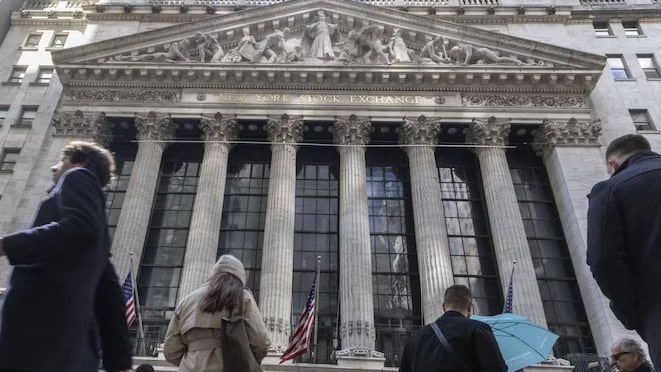According to a new report from Citigroup, the $800 billion stimulus that was rolled out to help support the US economy during the COVID-19 pandemic is beginning to fade, and this could have significant impacts on the equity market and other high-risk assets.
The report, which was published on Monday, warns that the stimulus package, which was approved by Congress in March 2020, has provided significant support to the US economy over the past year, but its effects are starting to wear off. As a result, Citigroup predicts that the equity market and other high-risk assets could be hit in the coming months.
The report notes that the stimulus package provided much-needed support to consumers and businesses during the pandemic, helping to keep the economy afloat during a difficult period. However, as the stimulus payments and other forms of support begin to wind down, Citigroup expects that consumer spending will begin to decline, which could lead to a slowdown in economic growth.
This, in turn, could have negative impacts on the equity market and other high-risk assets. As Citigroup explains, investors have been optimistic about the future prospects of the economy, but if economic growth begins to slow, this could lead to a reassessment of those prospects, which could result in a sell-off of equities and other high-risk assets.
The report notes that this is not necessarily a cause for alarm, as some level of correction is normal and healthy for the market. However, Citigroup warns that investors should be cautious and pay attention to the potential risks, as the market could be in for a bumpy ride in the coming months.
The report also notes that there are other potential risks to the market beyond the fading of the stimulus package. For example, inflation has been a concern for many investors, and if inflation begins to rise more quickly than expected, this could also lead to a sell-off of equities and other high-risk assets.
Overall, the report emphasizes that while the US economy has made significant progress in recovering from the pandemic, there are still risks and uncertainties that investors should be aware of. As the stimulus package begins to fade and other potential risks emerge, the equity market and other high-risk assets could be in for a rocky ride in the coming months.
It is important to note that Citigroup is not the only institution warning about potential risks to the market. Many other financial institutions have also expressed concerns about the potential impact of inflation, rising interest rates, and other factors on the equity market and other high-risk assets.
Investors should be mindful of these risks and work with financial professionals to develop a diversified portfolio that can withstand potential market volatility. While no investment is entirely risk-free, diversification can help to minimize risk and provide a measure of stability during uncertain times.
In conclusion, while the fading of the $800 billion stimulus package is certainly a concern for investors, it is just one of many potential risks that could impact the equity market and other high-risk assets in the coming months. Investors should stay vigilant and work with financial professionals to develop a long-term investment strategy that can weather potential market volatility.
It is also important to recognize that the stimulus package was never meant to be a long-term fix and its expiration will likely have only minimal short-term effects on equity markets. In the end, investors should focus on maintaining a balanced portfolio and investing for the long term. Taking steps such as diversifying into different asset classes, rebalancing portfolios, and taking advantage of tax planning strategies can help investors weather any volatility in the markets. Additionally, it is important to remember that market timing is rarely successful; instead, investors should focus on fundamentals and financial goals when making investment decisions.










